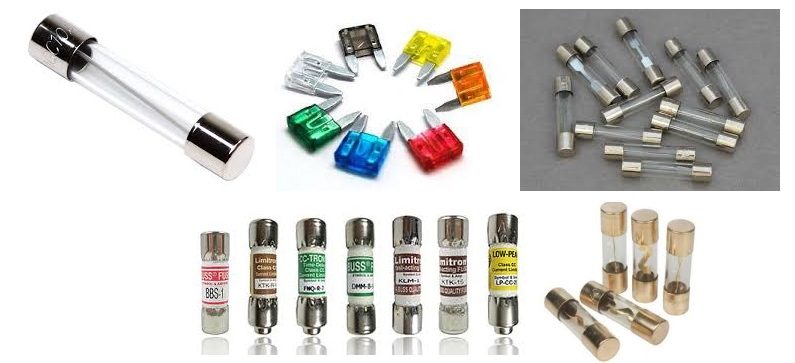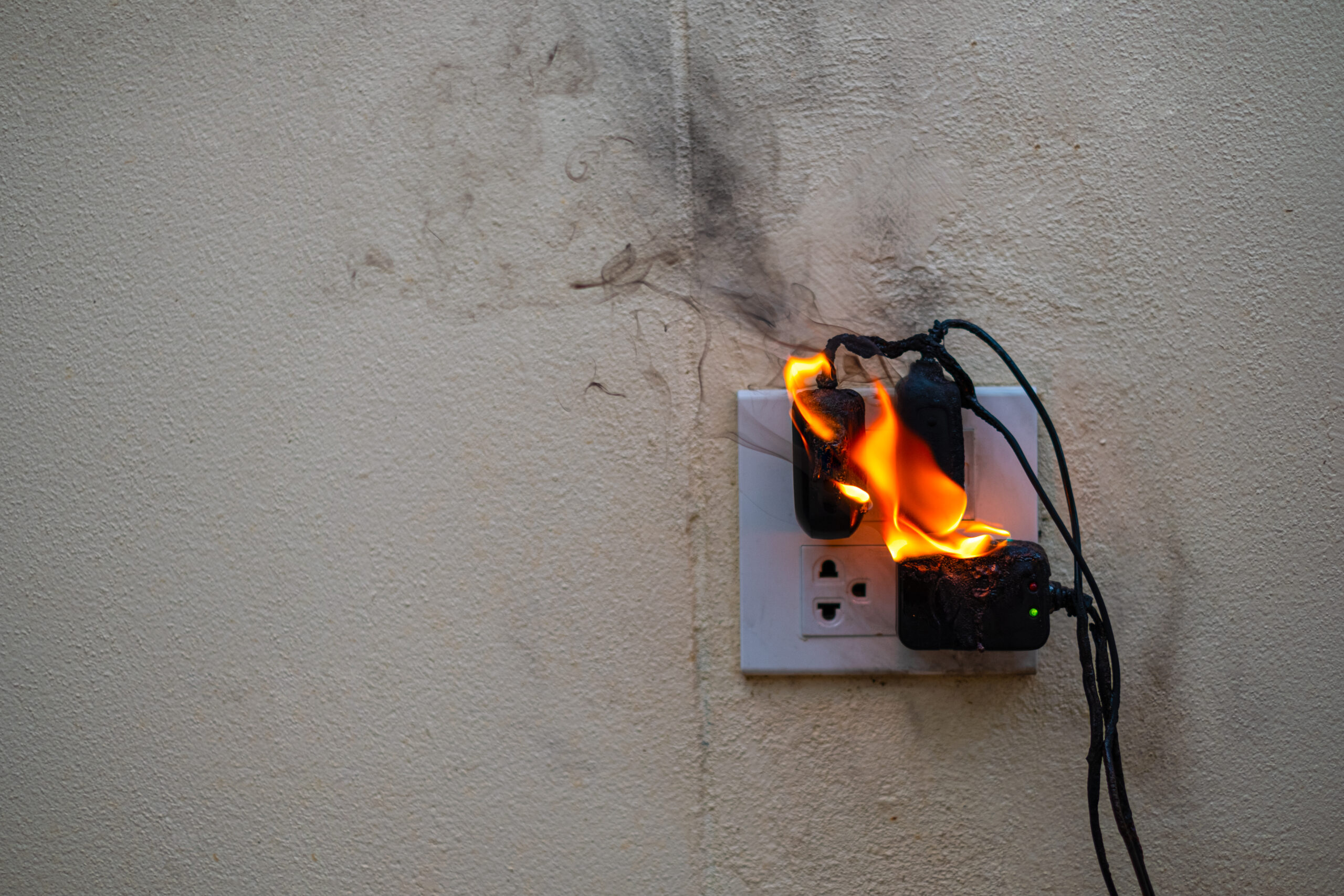Electrical safety is something most of us take for granted until an unexpected surge or short circuit causes a blackout—or worse, damages our devices. So, how does a fuse act as an electricity safety measure, and why is it crucial in safeguarding our homes, appliances, and lives? A fuse is more than just a small component in your circuit; it’s your first line of defense against electrical hazards, like overcurrents and short circuits, that could lead to overheating or even electrical fires.
In this article, we’ll explore how fuses work, their different types, and why they are indispensable in modern electrical systems. From protecting delicate electronics to preventing catastrophic failures in high-voltage setups, this guide will demystify the role of fuses and their significance. Whether you’re an electrician, a homeowner, or just curious about electrical safety, you’ll find valuable insights into the technology, functionality, and installation of fuses.
Keep reading to learn how this humble device plays a vital role in electrical safety and what you need to know to ensure your circuits are properly protected.
What Is a Fuse and Its Role in Electrical Circuits?
An Overview of Fuses in Electrical Systems
A fuse is a small, yet powerful, safety device that plays a critical role in protecting electrical circuits. It is designed to interrupt the flow of electricity when current levels exceed safe limits, preventing overheating, electrical fires, and equipment damage.
Key Characteristics of a Fuse:
- Simple Design: A fuse consists of a metal wire or strip housed in a non-combustible casing.
- Thermal Sensitivity: The metal within a fuse melts when excessive current flows through it.
- Single-Use Functionality: Once the fuse blows, it needs to be replaced.
Importance of Fuses:
- Prevent electrical overloads.
- Minimize fire hazards caused by overheated wiring.
- Protect electrical devices and appliances from damage.
How Does a Fuse Act as an Electricity Safety Measure?
The Core Mechanism of Fuses
To understand how a fuse acts as an electricity safety measure, it’s essential to grasp its fundamental operation.
- Current Monitoring:
- Fuses are installed in series with the electrical circuit.
- They constantly monitor the flow of electrical current.
- Melting Point Activation:
- The fuse contains a thin metal strip with a specific melting point.
- If the current exceeds the designed threshold, the metal melts.
- Circuit Interruption:
- When the metal melts, the circuit opens.
- This interrupts the flow of electricity, protecting downstream devices.
Why This Mechanism Is Effective
- Immediate Action: The fuse blows instantly when a surge occurs, offering swift protection.
- Non-Reversible Damage: By requiring replacement after activation, it ensures a cautious approach to restoring power.
Types of Fuses and Their Specific Applications
Overview of Fuse Varieties
Fuses come in various types to cater to different electrical systems and voltage requirements. Choosing the right type ensures optimal protection.
Main Types of Fuses:

- Cartridge Fuses:
- Cylindrical shape with metal end caps.
- Commonly used in industrial and commercial applications.
- Blade Fuses:
- Found in automotive systems.
- Easy to install and replace.
- Resettable Fuses:
- Automatically reset after cooling down.
- Useful in circuits with frequent surges.
- High-Rupture Capacity (HRC) Fuses:
- Handle large short-circuit currents.
- Widely used in heavy machinery.
- Plug Fuses:
- Screw-in design for home use.
- Often found in older electrical systems.
Choosing the Right Fuse:
- Consider the voltage and current rating.
- Evaluate the environment (e.g., industrial, residential, or automotive).
- Account for the frequency of current surges in the system.
Benefits of Using Fuses in Electrical Systems
Fuses as a Safety First Mechanism
Fuses provide multiple benefits that make them indispensable in modern electrical setups.
Key Benefits:
- Cost-Effective Protection: Fuses are relatively inexpensive compared to other protective devices like circuit breakers.
- Ease of Use: Simple to install and replace.
- Universal Application: Suitable for residential, commercial, and industrial systems.
- Reliability: Operate independently without requiring external power.
Comparison with Circuit Breakers:
| Feature | Fuses | Circuit Breakers |
| Cost | Affordable | Higher initial cost |
| Usage | One-time use | Reusable |
| Speed of Response | Immediate | Slight delay |
| Maintenance | Replace after activation | Reset after tripping |
Common Electrical Hazards Prevented by Fuses
Protecting Against Electrical Faults

Fuses are essential for mitigating various electrical faults that can cause damage or pose risks.
Key Hazards Prevented:
- Overcurrent:
- Occurs when the current exceeds the circuit’s capacity.
- Can lead to overheating of wires and devices.
- Short Circuits:
- Happens when current bypasses the intended path.
- Results in rapid heat build-up, posing a fire risk.
- Ground Faults:
- Current flows into the ground instead of returning through the neutral wire.
- Can cause electric shocks and equipment damage.
- Arc Faults:
- Sparks caused by loose connections or damaged wires.
- Fuses cut off power to stop fire outbreaks.
How to Install and Replace a Fuse Safely
Steps for Proper Fuse Installation
Installing a fuse correctly is critical to ensure it functions effectively.
- Turn Off Power:
- Disconnect the power supply to the circuit.
- Use an insulated tool for added safety.
- Inspect the Fuse Holder:
- Ensure the fuse holder is clean and free of corrosion.
- Verify compatibility with the fuse type.
- Insert the Fuse:
- Align the fuse with the holder.
- Secure it firmly to maintain proper contact.
Replacing a Blown Fuse
When a fuse blows, follow these steps for safe replacement:
- Identify the cause of the overload or short circuit.
- Turn off the main power supply.
- Remove the blown fuse and inspect it for damage.
- Replace with a fuse of the correct rating.
Safety Tips:
- Always use a fuse with the correct voltage and current rating.
- Avoid makeshift solutions like bypassing the fuse with wire.
- Wear insulated gloves when working with electrical components.
FAQs About Fuses and Electrical Safety
Common Questions About Fuses
- What Happens When a Fuse Blows?
- The electrical circuit opens, halting the flow of current to prevent damage or hazards.
- Can a Fuse Be Repaired?
- No, fuses are single-use devices and must be replaced once blown.
- How Do I Select the Right Fuse?
- Match the voltage and current rating to the specific circuit requirements.
- Why Do Fuses Blow Frequently?
- Frequent fuse blows may indicate an underlying issue like overloaded circuits or faulty wiring.
- Are Fuses Still Used Today?
- Yes, despite the rise of circuit breakers, fuses are still widely used in certain applications for their reliability and cost-effectiveness.
Future Trends and Innovations in Fuse Technology
The Evolving Role of Fuses
As technology advances, so do the capabilities of fuses. Modern innovations focus on improving safety, efficiency, and integration with smart systems.
Emerging Trends:
- Smart Fuses: Equipped with sensors to provide real-time diagnostics and alerts.
- Miniaturization: Smaller fuses for compact electronic devices.
- Eco-Friendly Materials: Use of sustainable materials in fuse production.
- Improved Durability: Fuses designed to withstand higher voltage fluctuations.
The Role of Fuses in Renewable Energy Systems:
- Protecting solar panels and inverters from surges.
- Ensuring the safety of wind turbines and battery storage systems.
Essential Key Takeaways to Enhance Your Understanding and InsightsKey Takeaways
Understanding how a fuse acts as an electricity safety measureis essential for maintaining safe and efficient electrical systems in your home or business. By interrupting electrical current during overcurrent or short-circuit conditions, fuses play a critical role in preventing hazards such as fires, equipment damage, and electrical shock. This article has outlined the types of fuses, their benefits, and practical tips for installation and replacement to help you make informed decisions about your electrical safety. As a reliable and cost-effective solution, fuses continue to be a cornerstone of safe electrical engineering in both traditional and modern systems.
Looking ahead, innovations like smart fuses and eco-friendly materials promise to enhance the efficiency and environmental sustainability of electrical safety devices. Whether you’re a homeowner or a professional electrician, staying informed about these advancements will help you protect your systems and investments. If you have questions, insights, or personal experiences related to electrical safety and fuse applications, we’d love to hear from you! Share your thoughts or contact us for expert guidance on ensuring a secure and dependable electrical setup.
Trust Boca Electrical Services, Inc. for Reliable Electrical Safety Solutions
By understanding the types of fuses, their benefits, and proper installation practices, you can maximize their effectiveness and maintain a safer electrical environment. Embrace the power of fuses as the first line of defense in safeguarding electrical systems.
Electrical safety is not just about preventing damage to your appliances—it’s about safeguarding your home, business, and loved ones. If you’ve been inspired to enhance your electrical system’s safety after learning about how a fuse acts as an electricity safety measure, it’s time to take the next step with experts who care.
At Boca Electrical Services, Inc., we specialize in comprehensive electrical solutions tailored to your needs. From residential and commercial electrical servicesto electrical panel upgrades, surge protectors, and chandelier installations, we ensure your system is both safe and efficient. Whether you’re upgrading your electrical panel, installing a surge protector, or need advice on fuse replacements, our experienced team is here to help.
Contact us todayat +1 561-235-2513 or visit us at 158 NW 16th St #2, Boca Raton, FL 33432to schedule a free safety inspection. Let’s make your electrical system safer, together.
For more insights, explore other sections of our website or reach out for personalized recommendations. Your safety and satisfaction are our top priorities!